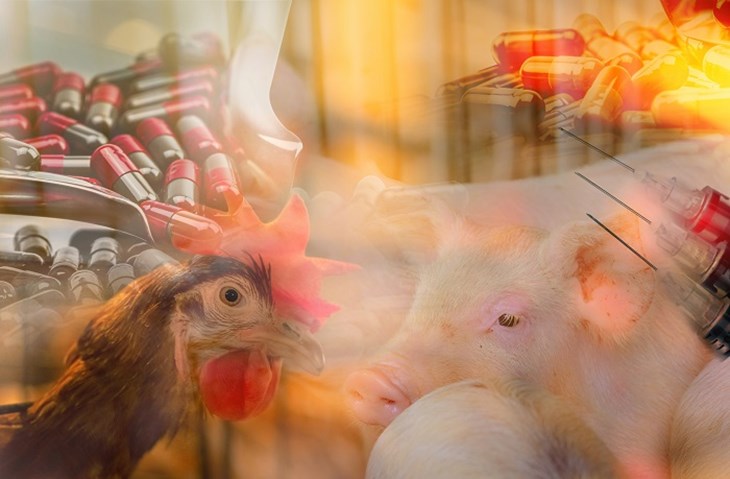
A new report, launched today (27th September), by the Alliance to Save Our Antibiotics – of which we are a founding member – has revealed that supermarket supply chains are still not complying with new legislation which prohibits using antibiotics to prop up poor farming practices. It also finds that policies are not being applied to branded foods, which can include imported meat, fish, dairy and eggs. The launch of the report coincides with the UN general assembly held in New York, where world leaders will meet to discuss the alarming rise in antibiotic resistance.
Top global health threat
Despite the World Health Organization (WHO) describing the rise of antimicrobial resistance as “one of the top global public health and development threats” killing an estimated 1.27 million people worldwide, including 7,600 people in the UK, supermarket antibiotic policies are still not robust.
The overuse of antibiotics leads to antibiotic resistance, so new UK legislation was introduced earlier this year to restrict the use of antibiotics in farming. The legislation prohibits using antibiotics to “compensate for poor hygiene, inadequate animal husbandry, or poor farm management practices”. Unfortunately, none of the supermarkets appear to have supply chains that are fully compliant with this new law.
Supermarket policies do generally say that their suppliers must use good animal husbandry and farm management to minimise the need for antibiotics. However, in practice, supermarkets are frequently allowing their suppliers to use intensive-farming methods known to cause higher levels of disease and of antibiotic use.
Supermarkets must act
Cóilín Nunan, Policy and Science Manager at the Alliance to Save Our Antibiotics, said: “It is no longer legal to use antibiotics to prop up farming methods that are causing animals to fall sick. So to avoid misusing antibiotics, and to keep animals healthy, supermarkets must now take strong and urgent action to improve animal husbandry and welfare.”
The report is the fourth assessment of the antibiotics policies of the leading UK supermarkets and identifies progress made since the first assessment was published in 2017. This has contributed to a 59% reduction in total farm antibiotic use and an 81% reduction in the use of the highest-priority critically important antibiotics since 2014.
However, most supermarket antibiotics policies still only apply to own-brand products, which are frequently of UK origin. Branded products – which account for 48% of grocery spending in Britain – and most imported meat, fish, dairy and eggs are not covered by the supermarkets’ rules for responsible antibiotic use.
Cóilín Nunan added: “Globally, it is estimated that about two thirds of all antibiotics are used in farm animals. Yet supermarkets are often not checking whether imported food they are selling has been produced with routine antibiotic use. This is unfair on UK farmers, who are held to higher standards. More importantly it is a threat to the health of consumers.”
A stark reality
Dr Ron Daniels, Vice President of the Global Sepsis Alliance, said: “Antibiotics are the bedrock on which we've built much of modern medicine. Without these vital medicines the risk of routine procedures, like elective surgery or cancer chemotherapy, will skyrocket. The stark reality is that multi-drug resistant bugs are causing life-threatening infections in thousands of patients in our hospitals today, with many sadly dying as a consequence of sepsis. That’s why all of society needs to urgently come together to address the drivers for rising rates of AMR urgently and cohesively, including addressing our desire to consume meat produced in intensive farming.”
The Alliance calls on all supermarkets to swiftly strengthen their animal-husbandry and antibiotics policies across all products and urges the Government to ensure that the new legislation on farm antibiotic use is fully implemented.
Find out more about the antibiotics health crisis partly fuelled by factory farming.
